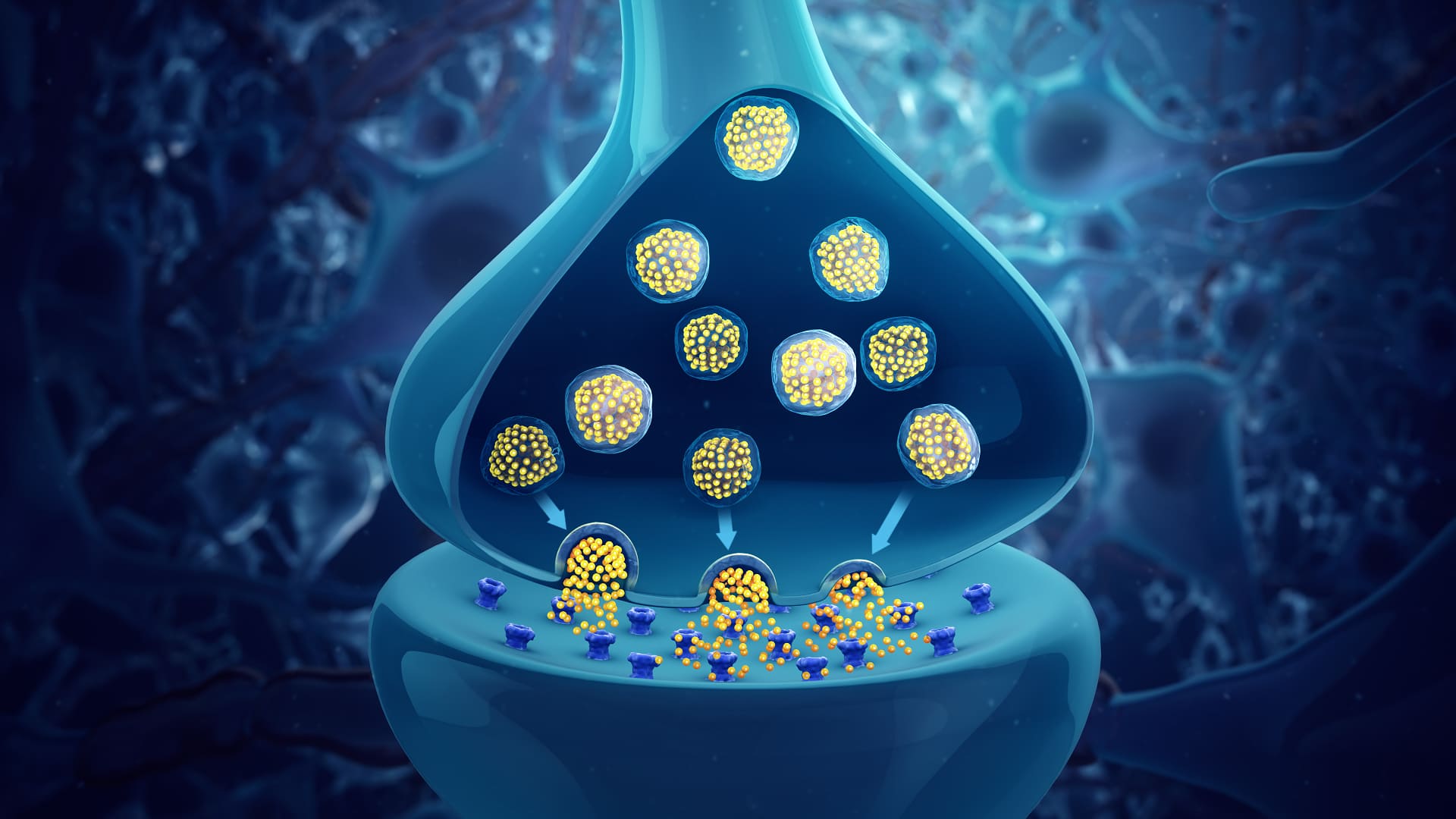Reaction: study describes receptor that could be new target for future antidepressant drugs
Glycine is an amino acid that also acts as a neurotransmitter, transmitting signals between neurons. According to a study published in Science, glycine's signalling in the brain and its antidepressant properties may be mediated by a receptor the authors call mGlyR. The research describes this mechanism using computational models, in vitro assays and experiments in mice. According to the authors, this receptor could be a new target for developing antidepressant drugs.

Scientific Animations-Wikimedia.
Verónica Guarner - blanco depresión EN
Verónica Guarner-Lans
Researcher in Medical Sciences, Department of Physiology, Ignacio Chávez National Institute of Cardiology, CDMX, Mexico
This study describes the possible mechanism of action regulating metabotropic activation in cortical neurons that has been previously described. It is proposed that this effect is due to stimulation of the mGlyR receptor, formerly known as the orphan GPR158 receptor, by the amino acid glycine. The article is very comprehensive, as it addresses the mechanism of action from different experimental angles ranging from the analysis of the structure of the receptor, through the activation of membrane mechanisms that lead to the production of second messengers responsible for modifying intracellular activity, to the analysis of the effects of the absence of the receptor in knock out mice, unable to express the receptor.
We describe the receptor site to which glycine binds and the action of the receptor by binding to an RGS7-Gβ5 complex that anchors it to an intracellular pocket used by G-protein receptors, which mediate the synthesis of nucleotides such as cyclic AMP. Binding of the receptor to glycine inhibits the action of G-proteins, resulting in an excitatory effect on cortical neurons.
Activation of this mechanism of action through stimulation of this receptor by glycine results in mood conditions such as depression and knowledge of this may open up treatment possibilities for conditions of this nature. I would have liked to find information about the presence of these receptors in other organs of the body and discussion of their possible effects on other types of diseases.
Thibaut Laboute et al.
- Research article
- Peer reviewed
- Experimental study
- Animals
- In vitro



